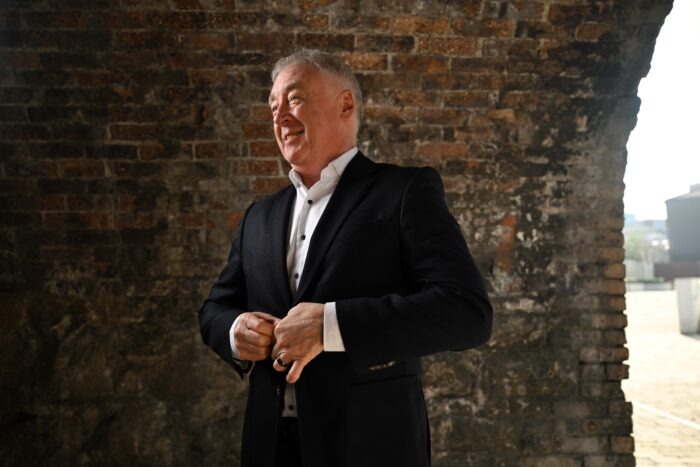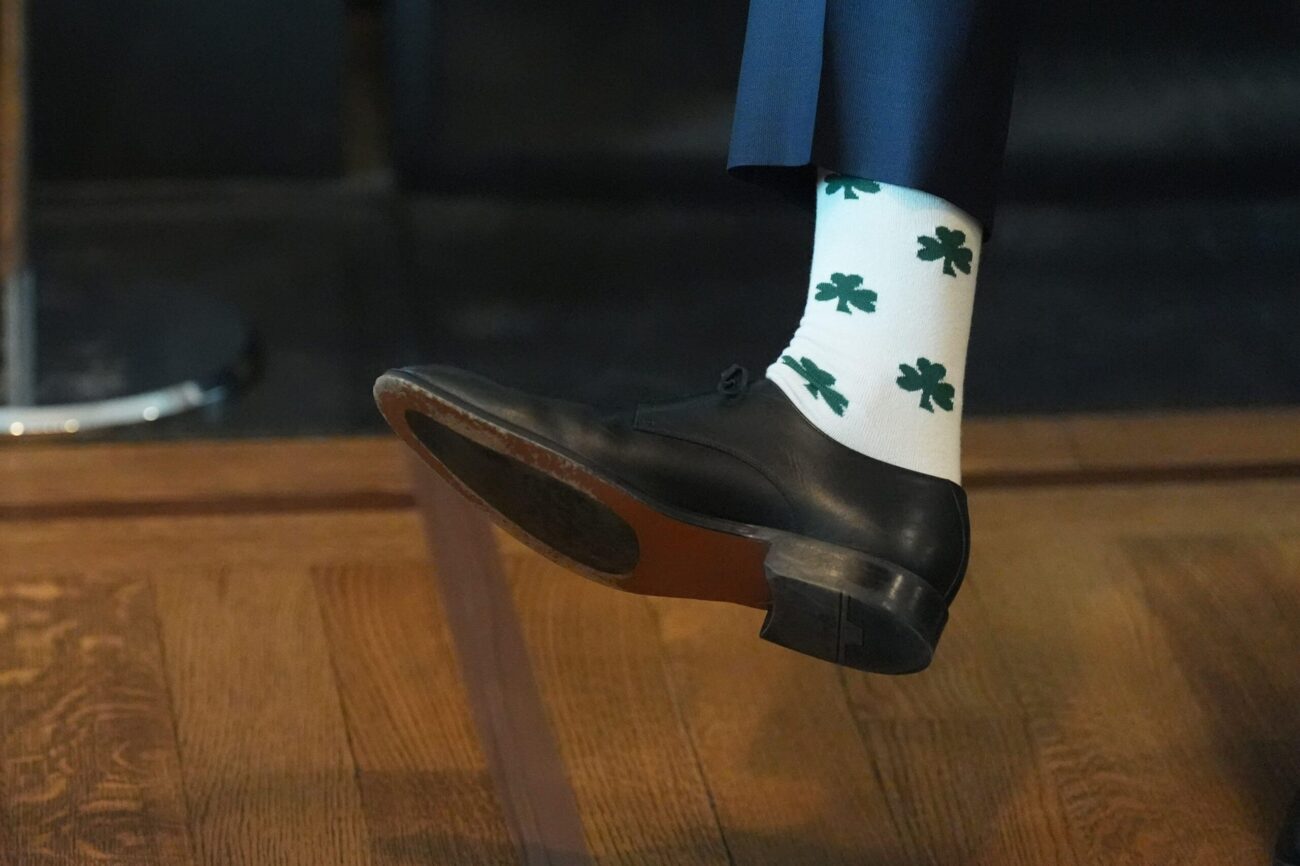Where to begin?
The Taoiseach went to Washington, smiling his way through a meeting with a man who, while seeming to have a genuine grá for Ireland, is also merrily disposed to uprooting the country’s economic model. The daily missives on tariffs are becoming so utterly confusing that it is now hard to decipher where a threat begins and a retaliatory strike ends.
Investors, baffled, confused, and aghast, have soured on Trump, and countless billions of dollars have been wiped off the value of those stock market giants that have been happily genuflecting before the Don.
Meanwhile, the sight of the Burke family boarding a flight to Washington was enough to spark fear and trepidation in government circles. “Did Elon invite them?” one aide asked me rhetorically after the wheels went up, referring to a man who has seen his own net worth collapse by $100 billion in the last two months and who is now sparring with Poland over his Starlink operation.
Plus, in case you have the stomach for it, the number of apartments granted planning permission last year fell almost 40 per cent, a sobering statistic pointing to a slowdown in building activity and a failure of policy. Perhaps that is a topic for another day.
After all, there is enough to unpack in a week where diplomacy met disorder, economics met ego, and Ireland found itself, yet again, caught in the crosswinds of global chaos.
Indeed, it was the sort of week when an exchange between the US president and the Taoiseach over the fighting style of the latter’s father just seemed to make sense.
“I think your father was a great fighter, right?”
“He was, yeah.”
“Look at you, you’re so smooth.”
“A very good defensive boxer. He fought for Ireland”
“Genetically, I am not going to mess around.”
Given the number of things that they could have discussed, the boxing prowess of the Taoiseach’s father was probably safe ground.
It was all very convivial, thankfully.
As one senior government advisor put it to me last week, the Taoiseach could not win in any situation. What mattered most was that he did not lose badly.
However, away from the shamrock diplomacy, the threats have not receded.
No sooner had Martin said slán than Trump threatened a vertiginous 200 per cent tariff on all alcohol coming out of the EU unless a “nasty 50 per cent tariff on [US] whisky” is stopped. The move would have devastating consequences for the Irish whiskey industry, which exported a whopping 5.7 million cases to the US in 2023.
Meanwhile, Howard Lutnik, Trump’s commerce secretary and a man with a habit of calling out the trade imbalance between Ireland and the US, was at it again, this time airing his grievances on Fox News.
“Ireland has a $60 billion surplus… because our companies drop their IP there. They pay Ireland the money — tax scam,” he said. “How about we end the tax scams.”
There is a veneer of truth to Lutnik’s claim. When people talk about windfall corporation tax and excess corporation tax, what they are largely referring to is the surge in tax being deposited to Dublin Castle through intricate IP manoeuvres, something Thomas has both exposed and chronicled. Yet, if it is a scam, it will be a hard one to unwind.
Trump said Ireland had attracted US pharma giants with “proper taxation” and his plan is to remove that incentive by aligning the American corporation tax rate with the new 15 per cent international benchmark.
But the US president conceded that such sweeping tax reforms are difficult to pass through Congress. “We are planning to lower taxes if the Democrats behave, but the Democrats have no clue,” he said. “The Democrats should get with us and come up with good tax policy so that Ireland and other countries can’t take our businesses away from us.”
Tariffs, however, can be imposed unilaterally by the White House and they will undoubtedly hurt, particularly targeted ones such as whiskey. The global economic uncertainty is not helpful either, to put it mildly.
However, the real concern among policymakers and aides in Dublin relates to investment and pharma.
“It was very, very clear that these guys are coming for the pharma sector. They have decided to do that, so the only question now is the extent of how they are able to do that,” one advisor told me.
It was a topic that Trump returned to again and again during his freewheeling session with the watching Martin.
“I have great respect for Ireland and what they did, and they should have done just what they did, but the United States shouldn’t have let it happen,” he riffed.
“We had stupid leaders. We had leaders that didn’t have a clue, or, let’s say they weren’t business people, but they didn’t have a clue what was happening. And all of a sudden, Ireland has our pharmaceutical companies. This beautiful island of five million people. It’s got the entire US pharmaceutical industry in its grasp.”
Warming to the theme, he went further: “Who would have been so stupid to let these deals happen? For instance, when the pharmaceutical companies started to go to Ireland, I would have said that’s okay if you want Ireland, I think it’s great, but if you want to sell anything into the United States, I’m going to put a 200 per cent tariff on you so you’re never going to be able to sell anything into the United States. You know what they would have done? They would have stayed here. He’s so lucky that I wasn’t.”
The foundation of the pharma industry here stretches back well before Trump decided to turn his hands at being president. US giants such as Pfizer, Johnson & Johnson, Eli Lilly, AbbVie and Merck have not just decamped here on a whim in recent years, armed with IP.
And, they are unlikely to leave in a hurry. For the Government, this is not a concern.
The real concern is the future flow of investment into Ireland. If you break the economy into components, you have consumption, government spending, exports minus imports and investment.
Due to trade wars and tariffs, much of the focus has been on exports and imports. For Ireland, the bigger concern is arguably future investment. “This is the game,” one minister told me.
The pharma and chemicals sector paid close to €4 billion in corporation tax in 2023 in Ireland. This was second only to the ICT sector, which paid €4.24 billion. However, unlike the social media giants, these companies have built large-scale plants and factories in Ireland. They were embedded in the economy.
The concern is that these companies, and those that service them, will delay making future investments due to the wider global uncertainty. Already, there has been a slowdown in investment announcements by the IDA. The longer-term prospect of corporation tax reform could postpone decisions beyond the immediate trade war.
“These are the next wave of jobs, the next technological evolution,” another government policy advisor told me. “They are all being delayed.”
It is increasingly clear that Trump’s approach to trade and tariffs is about power and the imposition of that power. It is about encouraging domestic industrial production rather than revenue raising. There had long been a hypothesis that he would be reined in by the stock or bond markets. This not longer seems correct, if his response to the market sell-off last week and the future doubts about the dollar was anything to go by.
Martin can talk about the amount of Boeing aircraft that Irish companies buy (he was right to do so last week during his meeting with Trump), but the US president is playing a different game where the normal rules of engagement do not seem to apply.
In this world, perhaps copying the defensive boxing style of the Taoiseach’s father is as good a place to start as any.
Elsewhere last week…

As UK-backed consolidators snap up Irish accountancy firms, Dominic Kelly is taking a different path. With new investment from Renatus, Kelly wants Strata Financial to offer an Irish alternative for smaller practices. I caught up with him where he outlined his pitch and his plan.
Sustainability-focused VCs gathered in Wicklow to look for investment opportunities in Irish companies. Event mastermind Faye Walsh Drouillard told Alice that funds are looking to Ireland for new opportunities and she wants to put the country on the map.
Dedalus managing director Daryll Goodall spoke to Michael about the HSE’s digitisation drive, his company’s acquisition of Irish business Swiftqueue, and the need for electronic health records. “Hospitals are complex places, they’re like airports,” he said.
With ministers pushing ambitious spending plans amid global uncertainty, will the Government’s optimistic outlook hold — or are costly miscalculations on the horizon? It was a question posed by Colm McCarthy in his column last week.


